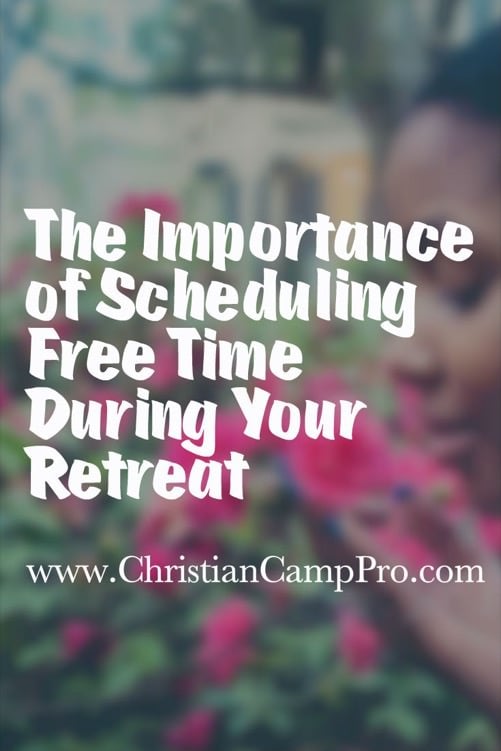Ask anybody what they wish they had more of and “free time” will certainly be among the first answers. The same goes for people during a retreat. After all, they’re attending in their free time. If you plan too many activities, people won’t feel like they are on a retreat. Instead of happy, relaxed attendees, you will end up with grumpy ones, because no matter how fun those activities are, having a lot of them will turn into chores.

Why do we need free time?
Have you noticed how stressed and edgy workaholics are? That’s because even people who thrive on balancing projects, managing tasks and working with tight deadlines need leisure time. Allowing the brain to have downtime increases your productivity, improves your creativity, and raises your attention level. Alternatively, people who don’t take enough breaks become irritable and develop sleeping disorders, headaches and other problems.
Numerous studies in time use have revealed that even people who love their job feel better during their days off: they sleep better, their mood improves and they experience less pains. On top of that, research shows that people who allow for free time during work hours are actually able to complete their tasks more efficiently than people who don’t take any breaks.
What do we do with our free time?
A short answer is anything that doesn’t involve work. An even shorter answer would be “sleep”. Of course, that’s the most obvious answer, so we will look beyond that. A survey conducted among students in Italy, for example, showed that they spend most of their free time going out with friends. Studying ranked a close second, while watching television takes up the third most amount of free time in a student’s day.
This changes significantly when it comes to American adults. 16.8 % of their time spent not sleeping is taken up by watching TV or movies, according to a survey conducted over several years, in the first decade of the 21st century. An amazing 7.1% of the total waking hours is spent dinning, with only 4.3% dedicated to socializing/communicating with others.
The same survey among American adults showed that half of their time spent not sleeping is spent at home, with “behind the wheel” ranking a surprising third. Most of the time that Americans are not spending sleeping, working or grooming themselves is spent with at least one other person.
All of this research suggests everybody should really go on retreats more often! We need to make more time for ourselves and not get completely absorbed with activities decided on by others. So, when planning a retreat, don’t schedule activity after activity after activity, thinking that you need to give people something to do all of the time. You also need to give people enough time to take walks, naps, play games and whatever else they will choose for themselves. It will work wonders!

